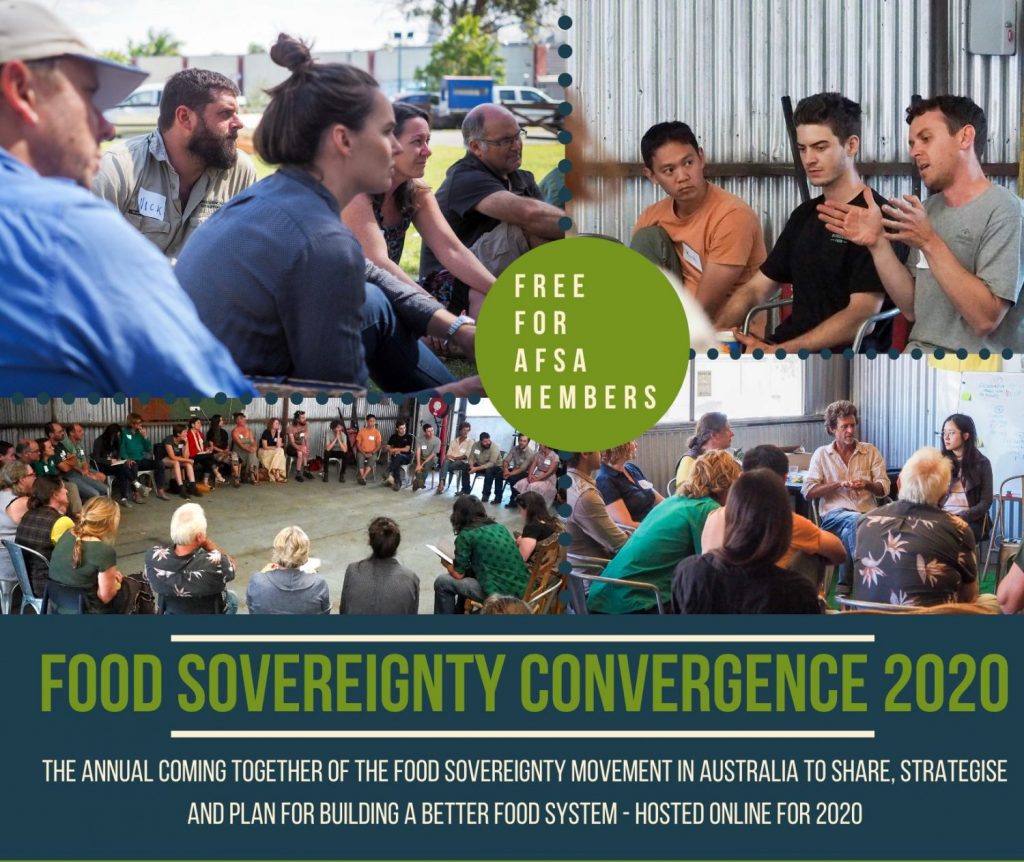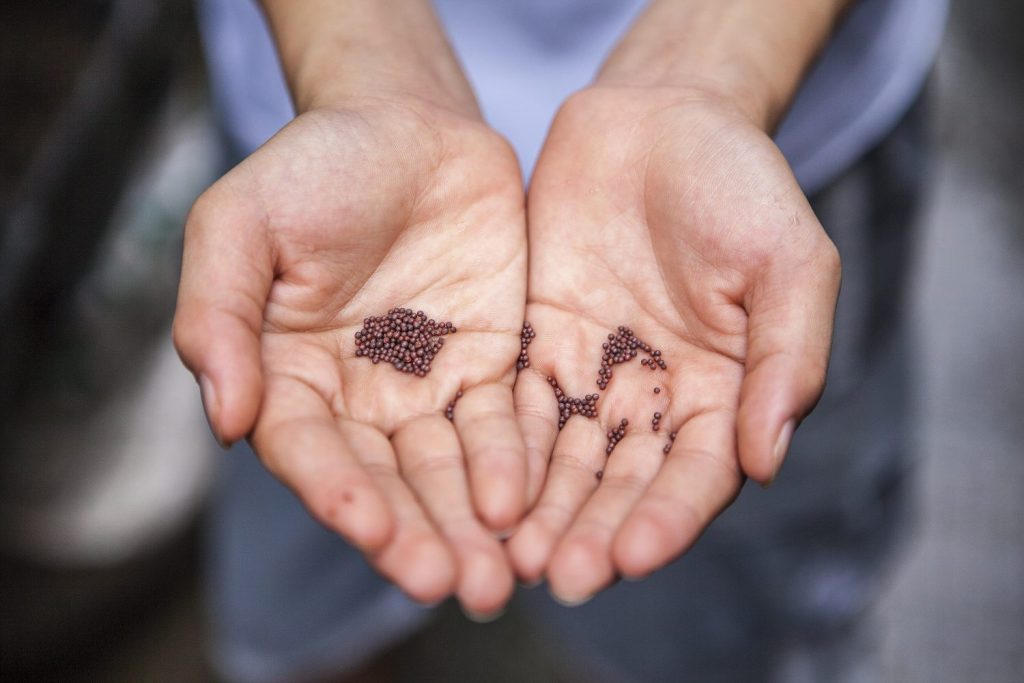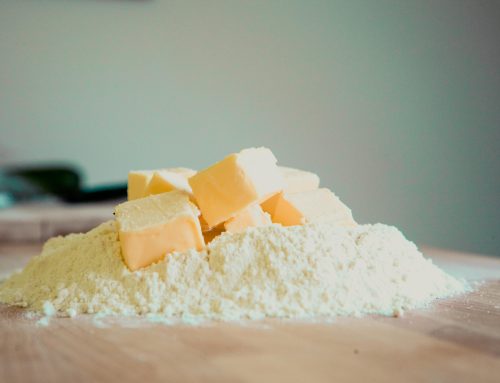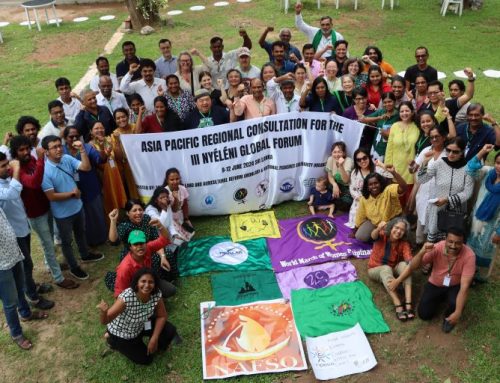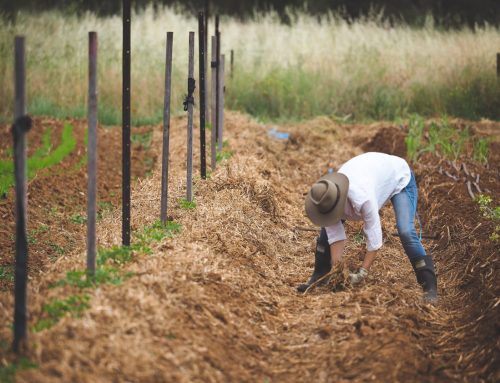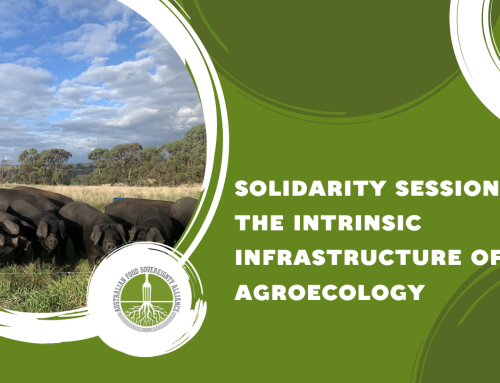
AFSA fights for food sovereignty on many fronts – including in the international arena where governments, civil society, and other actors negotiate goals and policies that affect food systems in Australia and around the world.
As part of the International Planning Committee for Food Sovereignty, AFSA reps take the concerns of small-scale producers and grassroots social movements to the U.N. Food and Agriculture Organisation.
From 1-4 September, AFSA President Tammi Jonas attended the Asia Pacific Regional Conference of the FAO and delivered the first statement from civil society on the impact of COVID-19 on smallholders in our region.
She called for governments to address the root causes of the pandemic in intensive industrial agriculture systems, for support to the small-scale systems that have kept our food supply resilient and safe during COVID, and for policies and infrastructure that enable community-controlled and socially-just food systems. See the full intervention below
Intervention on the impact of COVID 19 on smallholders
I speak today on behalf of 43 leaders from 26 CSOs from Asia and the Pacific.
COVID-19 has accentuated as never before how long supply chains are tied to the emergence and spread of disease via industrial agribusiness. We small-scale farmers, fishers, and indigenous peoples who have long advocated for food sovereignty, and predicted this pandemic have never been so unhappy to be proven right that the industrial food system is dangerous. The world must act to address the CAUSES of pandemics, and we must act swiftly.
We urge member states to reform the hazardous practices of intensive livestock production models that are causing a rapid increase in the emergence of zoonotic diseases such as the novel coronavirus. Models that separate the breeding of livestock from where they will be grown remove a natural immunological firebreak. The same model of production then grows thousands of genetically identical immuno-compromised animals in unhealthy environments – creating what epidemiologist Rob Wallace calls ‘food for flu’. If the current pandemic has not underscored this extreme risk to public health sufficient to drive governments to urgent action, then all hope for a healthy future is surely lost. We urge member states to adopt Structural One Health approaches to address the root causes of pandemics in their governance of livestock agriculture and forests.
We have seen a surge in demand for e-commerce platforms for the sale of food, and government support for profit-driven corporate platforms such as Alibaba and others. We urge governments to support open source and community-controlled platforms such as the not-for-profit global organisation Open Food Network, which both enables farmers to connect to eaters, and to collaborate with other farmers.
Unfortunately, many smallholders have faced the forced closure of their farmers’ markets while corporate-controlled supermarkets were deemed essential services. Governments must do all in your power to assert the essential service of local farmer-controlled markets where fresh, healthy, local produce can ensure food and livelihood security for both farmers and local communities.
The most resilient food systems during the pandemic have been those controlled by smallholders and communities that are not reliant on large, centralised value chain infrastructure. Just look at food system disruptions and unequal burden of risk on essential workers from the terrible outbreaks in large slaughter facilities, and the consequent mass culling of hundreds of thousands of pigs and poultry.
Smallholders and indigenous peoples everywhere must participate in making decisions around the response and recovery to the pandemic as assured in both the UNDRIP and UNDROP.
It’s up to all states to ensure these rights are upheld, and that the world emerges from this terrible epoch with healthier, more sustainable, resilient, and socially just food and agriculture systems.
